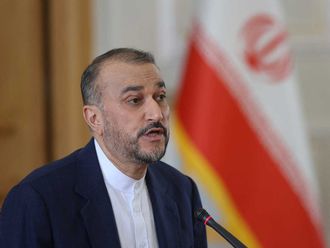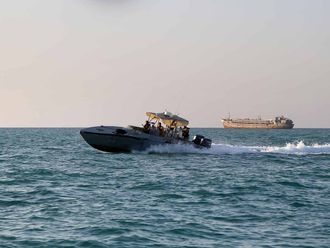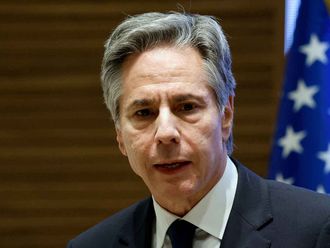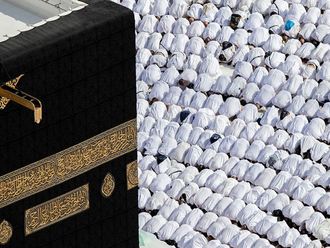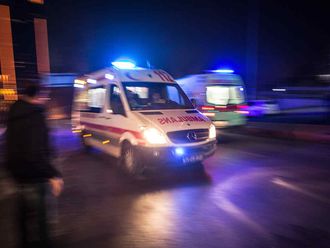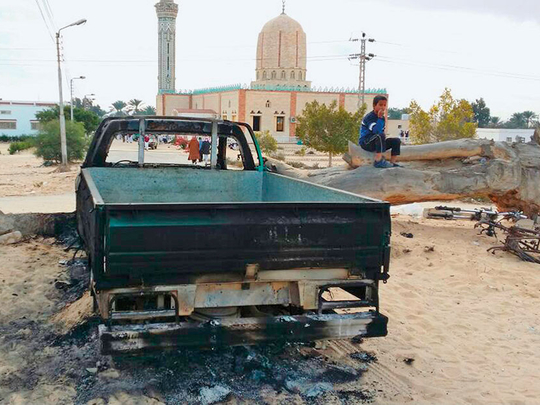
Sharqia, Egypt: “I’ll return to my mosque and stand on the same pulpit,” Shaikh Mohammad Abdul Fattah said defiantly, days after he survived a terrorist attack on a Sinai mosque that killed 305 people.
“I’ll return to my role to tell the terrorists that I am not afraid,” added the 26-year-old cleric, who sustained a foot injury after around 30 terrorists attacked the Al Rawdah mosque in North Sinai last week.
The attack was the deadliest in Egypt’s modern history. No group has claimed responsibility, although prosecutors have blamed Daesh terrorists for the assault.
“Two minutes after I ascended the pulpit to deliver the Friday sermon, I heard shooting that caused panic and chaos inside the mosque as worshippers tried to escape,” Abdul Fattah told Gulf News in his hometown Al Hussainya, some 130km north of Cairo.
“The terrorists were shooting randomly and without mercy. Some worshippers tried to escape from the mosque windows. Others sought refuge in the pulpit on which I was standing. The pulpit crashed under the pressure of the people. I fell on the ground and felt a pain in one foot,” recalls the cleric, who has delivered sermons at Al Rawdah mosque since 2015.
After the attack, Abdul Fattah was transported to a hospital in Al Hussainya, in the province of Al Sharqia.
He denies the mosque is affiliated to Sufi Muslims, regarded as ‘polytheists’ by militant extremists. “Al Rawdah mosque, like any other mosques, is designated for performing prayers, giving religious lessons and nothing else. Next to the mosque, there is a zawiya [a small place] where Sufi sessions are held.”
Some Egyptian media reported that a week before the November 24 attack, local worshippers were warned by extremists to stop Sufi rituals and shun the Al Rawdah mosque, the only place of worship in the village of the same name.
“I didn’t hear about this,” said Abdul Fattah. “What happened [the attack on the mosque] is not approved by any religion,” he said, as tears welled up in his eyes, a day after he left the hospital and returned home.
“My sermon, which was not completed last Friday, was about Prophet Mohammad (PBUH), Allah’s prayer and peace be on him, as the prophet of humanity. I asked the minister [of religious affairs] when he visited me in the hospital to allow me to return to the Al Rawdah mosque in order to continue my mission in spreading the message of Islam’s tolerance,” he added as a group of local visitors listened to him attentively. “May Allah illuminate your road, our Shaikh!” shouted one visitor in applause.
In recent years, Egypt has stepped up its campaign against militancy that has become more violent since 2013 when the army deposed Islamist president Mohammad Mursi. The militant attacks have since targeted Egypt’s security forces and the Christian minority.
Of the 305 people killed in the attack on the Al Rawdah mosque were two brothers, who hailed from Shaikh Abdul Fattah’s hometown. One was Fat’hi Ahmad, a veteran muezzin who used to make the call to prayers at the mosque.
Days after their death, the family is still distraught.
“Shaikh Fathi worked as a muezzin for about 40 years at the Al Rawdah mosque and always wanted to die and be buried in Sinai,” says Saeed Al Zeir, the brother of Fathi’s wife. “He and his brother Reda, who worked at Al Rawdah’s local council, were among the first martyrs in the cowardly attack,” Al Zeir told Gulf News.
Their bodies were riddled with bullets — in the head, the stomach and the legs — according to Al Zeir, who attended their burial at a mass grave in Al Rawdah in compliance with their wishes.
“Until now, I can’t believe that people praying inside a house of God are killed so brutally,” says Al Zeir, holding back tears. “We take refuge in Allah the Almighty. He gives respite, but never neglects,” he added as mourners gathering outside the family’s house nodded their consent.


